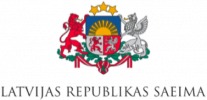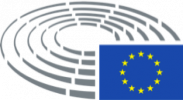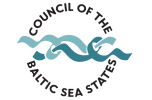On 17-18 March 2024, the parliamentarians of the Baltic Sea states met in the second meeting of the Baltic Sea Parliamentary Conference (BSPC) Working Group on Energy Security, Self-sustainability, Resilience and Connectivity (WG ESSRC) in Helsinki, Finland.
Chair of the WG ESSRC Andris Kulbergs opened the meeting by emphasising that due to all recent turbulences, the work of the BSPC WG is more important than ever. As the next winter will be crucial in terms of energy, there is a need for the Baltic Sea region to be better prepared. He highlighted the need to act together with the knowledge available to foresee the threats, make more interconnections in energy matters and exchange information and experience.
Expert presentations
Ministerial Adviser of the Finnish Prime Minister’s Office Jussi Soramäki informed about geopolitics and maritime policy in Finland. He stated that Russia’s war of aggression in Ukraine has further emphasized the importance of maritime transport – now the national border shared with Russia, which is 1344 kilometres long, is almost entirely closed. At the same time, there is a need to focus on possible connectivity and environmental threats to ensure the continued success of the Baltic Sea cooperation.
Docent of Russian Resource and Energy Policy at the National Defence University of Finland and professor at the University of Helsinki Veli-Pekka Tynkkynen informed about Russia’s strategy of being a Great Power of flows – all flows, such as energy and transport routes, are seen as means of coercion and repression. Fear is the main export commodity of the country. It was concluded that fear is a reaction, and courage is a decision, therefore, it is time to change the aim – for Russia to change, Ukraine must win.
Leading Researcher at the Finnish Institute for International Affairs Marco Siddi informed about the geopolitics of renewable energy, as well as the impact of the war in Ukraine on EU energy systems. After assessing shares of electricity production and energy consumption in each of the countries in the Baltic Sea Region, he emphasized the need to find availability for joint funding/financing to develop and maintain interconnectivity and regional cohesion.
Programme Director of the Natural Resources Institute in Finland Johanna Kohl stated that Europe needs the bioeconomy to transition from niche to norm. She recommended investing in research, technology development and innovations to improve resilience and self-sufficiency in nutrients, energy and food components, support the development of strong regional business clusters and value chains promoting circular bioeconomy principles, as well as educating the new generation of farmers.
Chairman Andris Kulbergs concluded very lively discussions between the members of the WG and experts by emphasising the pivotal role of the BSPC in finding solutions to current and future challenges and the potential to enhance cooperation of the Baltic Sea states in the areas covered by the WG. He encouraged the participants to find areas, in which joint actions would be of greater value, such as stockpiling or banning Russian vehicles in the Baltic Sea region. Lastly, Andris Kulbergs invited the members to the Conference of the Baltic Assembly and the Baltic Council of Ministers “Energy Future of the Baltic States: Addressing Regional Challenges Together” which will be held on 16-17 May 2024 in Vilnius, Lithuania.
During the meeting, the members of the WG ESSRC also assessed the recommendations of the WG and questions to be sent in the intergovernmental survey. It was agreed that the next meeting will take place on 26-28 May 2024 in Greifswald, Mecklenburg-Vorpommern (Germany).
Visits
Before the meeting of the WG ESSRC, the participants visited the European Centre of Excellence for Countering Hybrid Threats and the National Emergency Supply Agency of Finland.
During the visit to the European Centre of Excellence for Countering Hybrid Threats, Head of International Relations Tapio Pyysalo informed that it is an international, autonomous network-based organization promoting a whole-of-government and whole-of-society approach to countering hybrid threats. Participation in the Centre’s activities is open to all EU and NATO countries, and the number of Participating States has grown to include 35 states today. Hybrid CoE’s mission is to strengthen its participating states’ and organizations’ security by providing expertise and training for countering hybrid threats.
During the visit to the National Emergency Supply Agency of Finland, Chief Executive Officer of the National Emergency Supply Agency Janne Känkänen informed about the organisation's work, such as planning and operative measures related to developing and maintaining the security of supply. In cooperation with other authorities and the private sector, it ensures that the continuity of the critical functions of Finnish society can be safeguarded during crises and disruptions. They are a part of the Finnish Comprehensive Security Model, and their key focus areas now are military conflict, hybrid operations and the global economy.
Photos
© Secretariat of the Baltic Assembly & Parliamentary Office of Finland
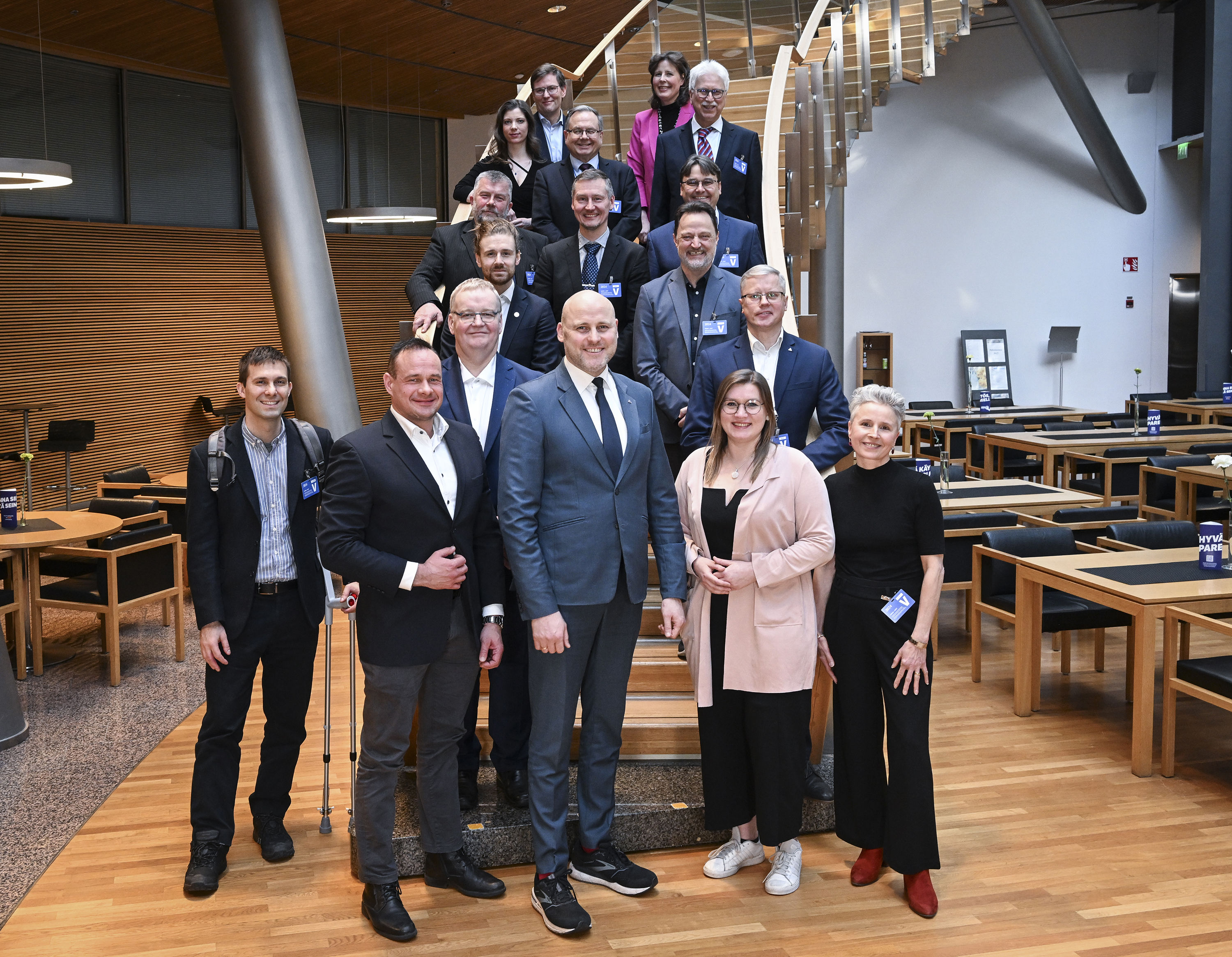
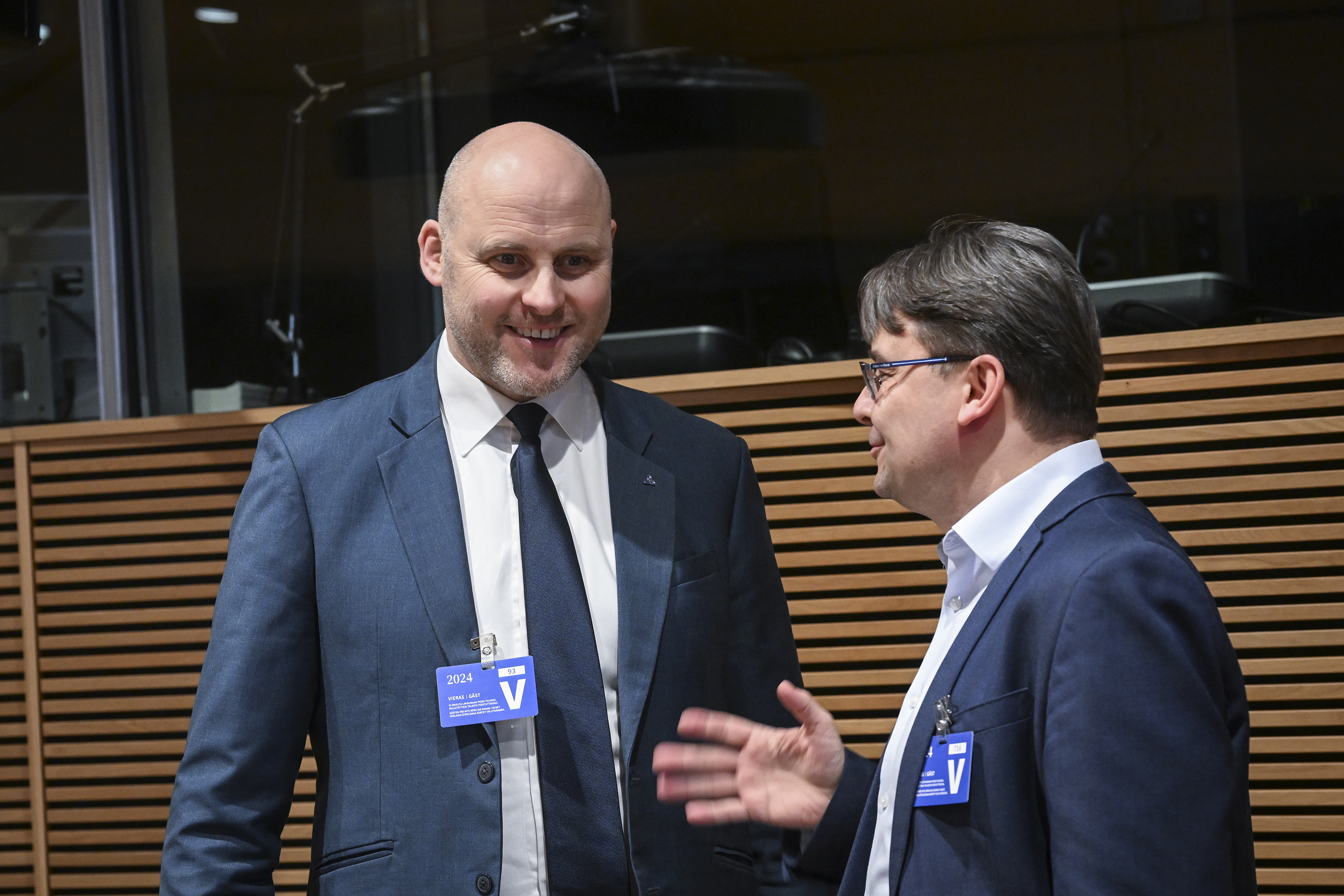
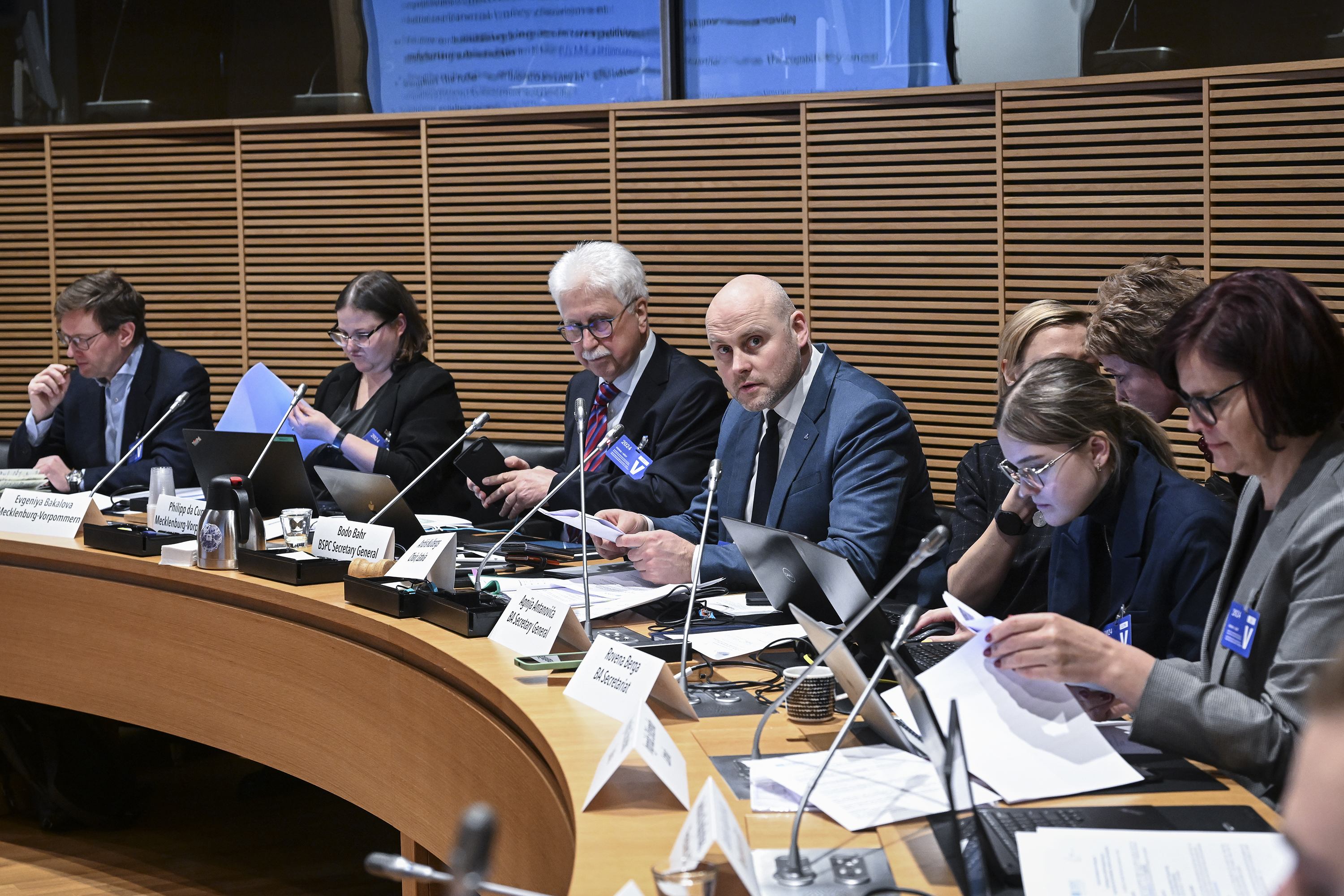
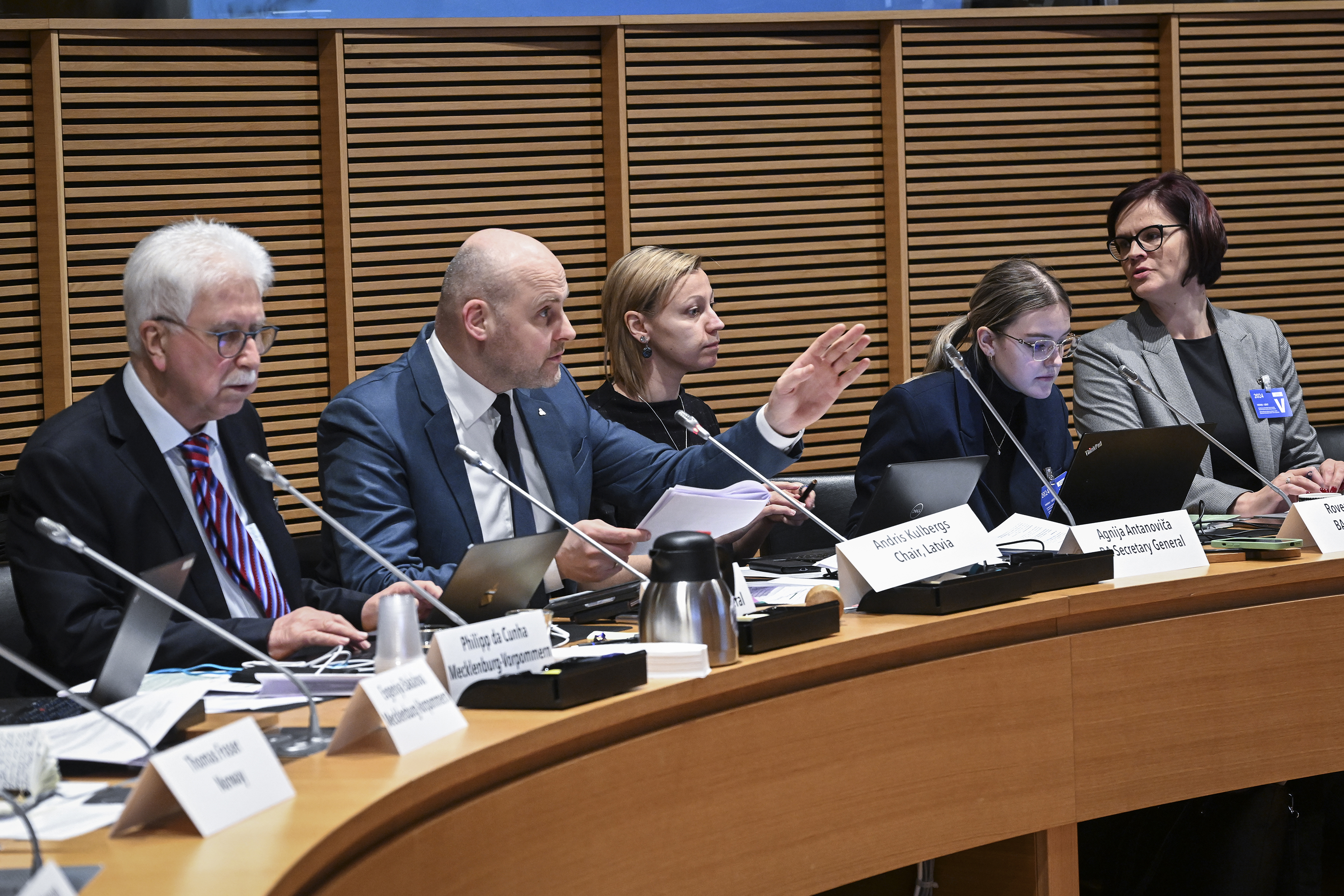
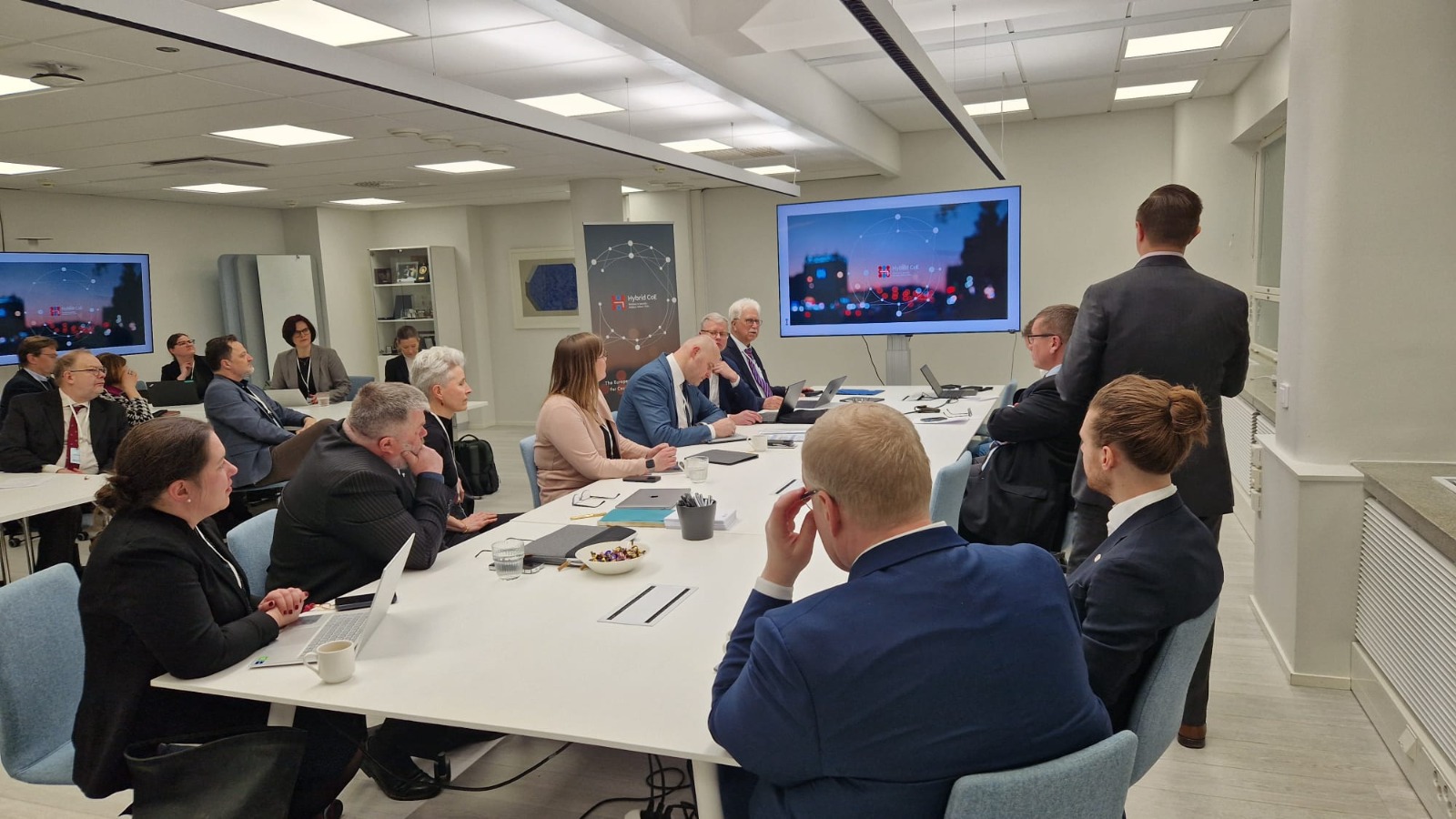
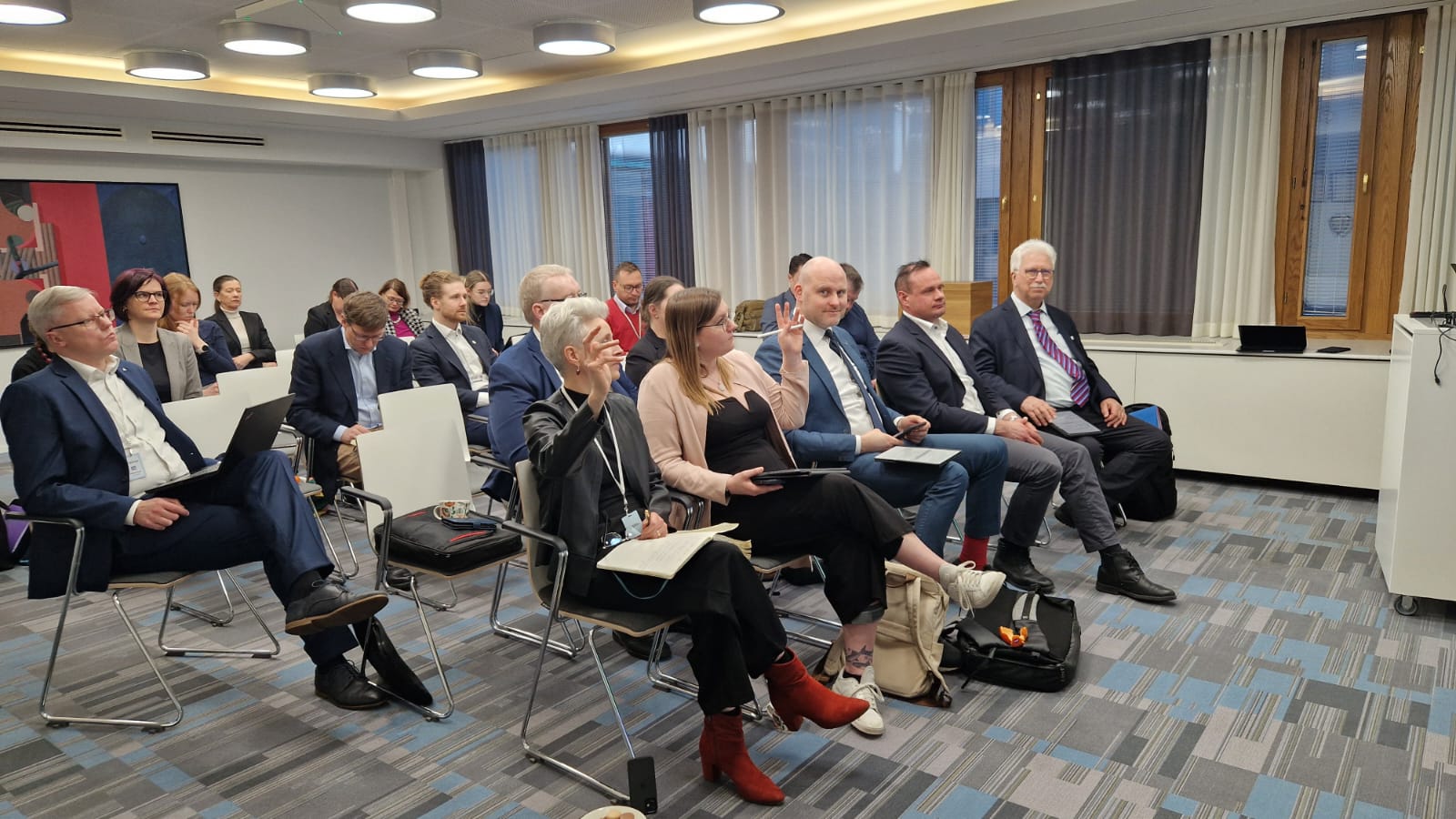
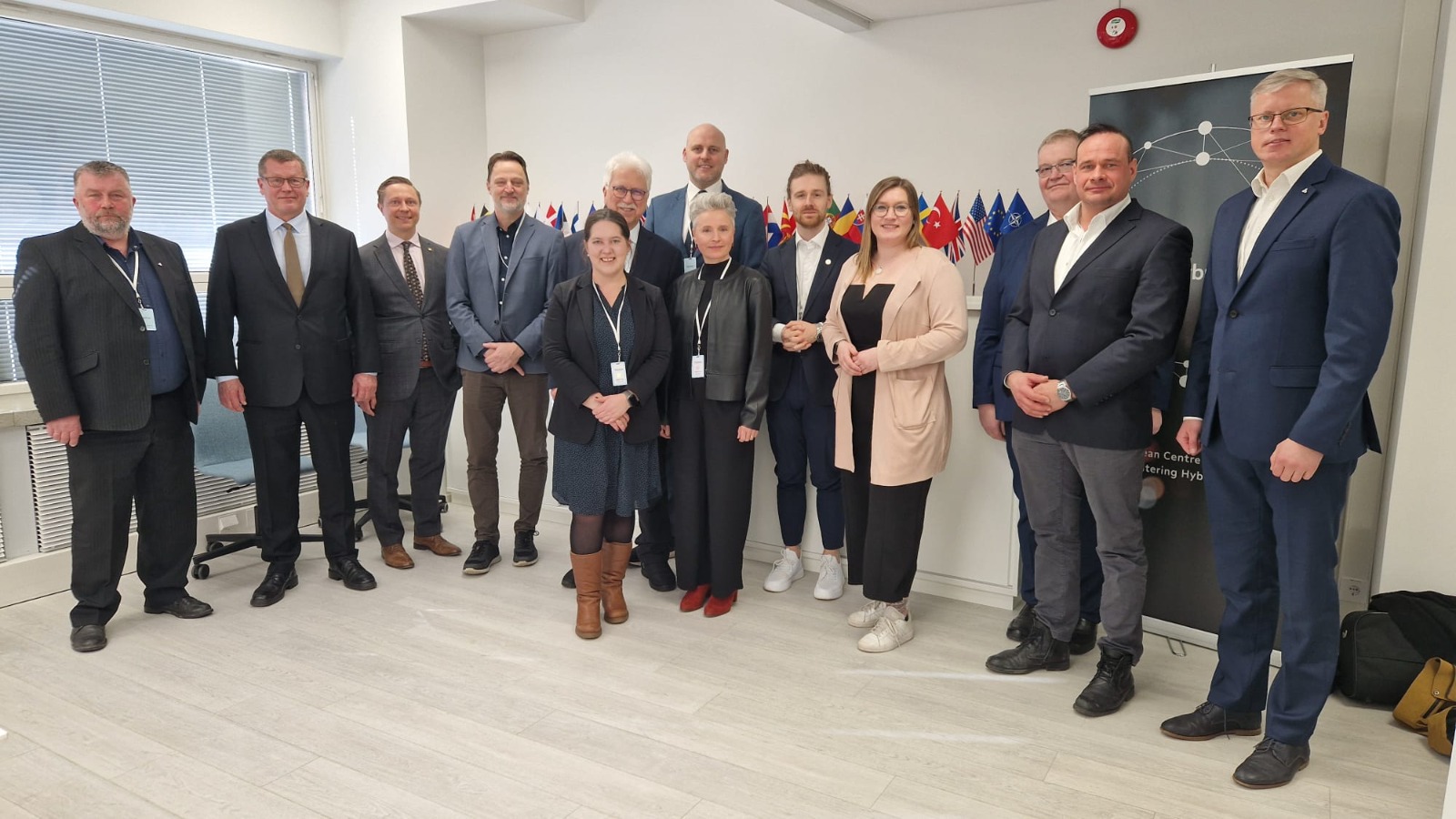
 Print
Print 

